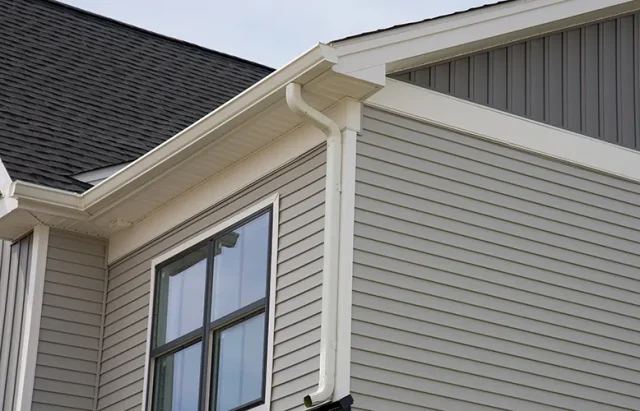
Choosing a Hudson siding contractor is one of the most important decisions homeowners in the Hudson area can make when it comes to maintaining or enhancing the appearance, durability, and energy efficiency of their homes. Whether you’re building a new home or renovating an existing one, siding is a crucial component that impacts both curb appeal and structural integrity.
In this comprehensive guide, we’ll explore what to look for in a siding contractor, types of siding materials, the benefits of professional siding installation, and how to ensure your contractor meets your specific needs. Whether you’re based in Hudson, NY, Hudson, OH, or Hudson, WI — the principles of finding a trustworthy contractor remain the same.
Why Siding Matters
Siding is more than just the outer shell of your house. It plays multiple critical roles, such as:
- Protection: Siding protects your home from wind, rain, snow, and UV rays.
- Insulation: High-quality siding improves energy efficiency and helps regulate indoor temperatures.
- Curb Appeal: The aesthetic appearance of siding can dramatically enhance your home’s exterior look and resale value.
- Low Maintenance: Modern siding options can reduce the need for regular painting or repairs.
What to Look for in a Hudson Siding Contractor
Choosing the right contractor ensures a smooth experience and long-lasting results. Here are key criteria to evaluate:
1. Local Experience
A contractor with a strong track record in the Hudson region is likely familiar with local climate patterns, zoning laws, and material preferences. For example, winters in Hudson can be harsh, so choosing a contractor experienced with cold-weather installation is vital.
2. Licensing and Insurance
Ensure the siding contractor is fully licensed and carries liability and worker’s compensation insurance. This protects you from financial and legal risks in the event of accidents or property damage.
3. Strong Portfolio
A reputable contractor will have an extensive gallery of past projects. Look for a range of styles, materials, and testimonials from satisfied customers. Request addresses of completed jobs to drive by and evaluate the workmanship in person if possible.
4. Detailed Estimates
A professional Hudson siding contractor will provide a written estimate that outlines all costs, including materials, labor, and potential contingencies. Avoid contractors who give vague or verbal quotes.
5. Product Knowledge
Good contractors stay updated on the latest siding products, trends, and installation techniques. Ask them about siding brands, insulation ratings, warranties, and maintenance needs.
Popular Siding Materials Used in Hudson Homes
Different materials offer distinct benefits and aesthetics. Here are the most commonly used siding types:
1. Vinyl Siding
- Pros: Cost-effective, low maintenance, available in many colors and styles
- Cons: Less durable than other materials, may fade over time
- Best for: Budget-conscious homeowners seeking easy maintenance
2. Fiber Cement Siding (e.g., James Hardie)
- Pros: Extremely durable, fire-resistant, excellent curb appeal
- Cons: More expensive and heavier, needs professional installation
- Best for: Homeowners seeking a high-end look with durability
3. Wood Siding
- Pros: Natural beauty, customizable with stains and paints
- Cons: Requires regular maintenance, vulnerable to pests and moisture
- Best for: Historic or rustic homes where aesthetics are a priority
4. Engineered Wood Siding
- Pros: Lighter than real wood, resistant to insects and moisture
- Cons: Can be more costly than vinyl, shorter lifespan than fiber cement
- Best for: Homeowners wanting the look of wood without the maintenance
5. Metal Siding (Steel or Aluminum)
- Pros: Fire-resistant, low maintenance, long lifespan
- Cons: Limited aesthetic choices, may dent easily
- Best for: Industrial or modern home designs
Signs It’s Time to Replace Your Siding
Even with high-quality materials, siding won’t last forever. Here are signs you may need to call a Hudson siding contractor:
- Warping, buckling, or sagging panels
- Mold, mildew, or rot visible on exterior walls
- Cracked or faded paint that peels prematurely
- Increasing energy bills (could indicate poor insulation)
- Pest infestations near the exterior walls
- Frequent repainting needs
- Outdated or mismatched styles impacting resale value
The Siding Installation Process Explained
A trustworthy siding contractor should follow a transparent and systematic installation process. Here’s what to expect:
Step 1: Consultation & Inspection
The contractor assesses the current siding, insulation, and structural integrity. This phase includes material recommendations and cost estimates.
Step 2: Design and Material Selection
Homeowners choose siding style, color, trim, and insulation options. Modern contractors often use 3D modeling to show finished results.
Step 3: Preparation
The old siding is removed, and any underlying issues such as rot or pests are repaired. The home is then wrapped in a moisture-resistant barrier.
Step 4: Installation
Siding is installed per manufacturer specifications. Attention is given to sealing seams, corners, and windows for insulation and weatherproofing.
Step 5: Cleanup and Final Walkthrough
A good contractor will leave the property clean and walk the homeowner through the finished work, answering any questions and ensuring satisfaction.
The Benefits of Hiring a Professional Hudson Siding Contractor
While some homeowners consider DIY siding installation, hiring a professional has significant advantages:
- Expertise: Professionals understand weatherproofing, cutting, and securing siding correctly.
- Warranties: Many manufacturers offer warranties only when certified contractors install the product.
- Time Efficiency: A project that might take a DIYer weeks can be completed in days.
- Safety: Professional crews are trained in ladder safety and fall prevention.
Cost of Siding Installation in Hudson
The cost of siding varies based on:
- Material type
- Home size and layout
- Insulation upgrades
- Trim and custom features
- Removal and disposal of old siding
On average, homeowners in Hudson can expect to pay:
- Vinyl siding: $6–$10 per square foot
- Fiber cement: $10–$14 per square foot
- Wood siding: $9–$15 per square foot
These estimates include labor and materials but can vary based on contractor rates and home complexity.
How to Vet a Hudson Siding Contractor
Here’s a checklist to guide your selection:
- Verify licensing and insurance
- Ask for 3–5 local references
- Check Better Business Bureau ratings
- Read Google and Yelp reviews
- Request multiple bids for comparison
- Review warranty details on both materials and labor
- Inspect sample materials before signing a contract
- Ensure you understand the timeline and payment structure
Questions to Ask Before Hiring
To ensure you’re choosing the right partner, consider asking:
- What siding brands do you install?
- Are you certified by the manufacturer?
- How long have you been working in the Hudson area?
- Do you offer financing options?
- What is the estimated project duration?
- How do you handle unexpected structural issues?
Sustainable Siding Options
Homeowners concerned about sustainability have several eco-friendly siding choices:
- Fiber cement: Made from sand, cement, and cellulose fibers — long-lasting and recyclable.
- Engineered wood: Uses wood fibers from sustainable forests and recycled content.
- Insulated vinyl: Improves energy efficiency by reducing thermal bridging.
Ask your Hudson siding contractor about green certifications and recycling practices for old materials.
Seasonal Considerations in Hudson
Hudson’s climate plays a critical role in the timing and methods of siding installation:
- Spring & Fall: Ideal seasons due to mild temperatures and lower humidity.
- Winter: Some materials (like vinyl) become brittle in freezing temps, so installation requires care.
- Summer: High humidity can impact adhesive or caulking — reputable contractors adjust for weather.
Professional contractors monitor the weather closely to avoid problems during siding replacement.
Maintenance Tips for Long-Lasting Siding
Protect your investment by following these maintenance practices:
- Inspect Annually: Look for cracks, warping, and mildew.
- Clean Regularly: Use a garden hose and soft brush to remove dirt and debris.
- Repaint or Reseal: Especially for wood and fiber cement, follow manufacturer guidelines.
- Trim Vegetation: Keep plants and trees from growing too close to your siding.
Final Thoughts
Hiring the right Hudson siding contractor is essential to achieving a beautiful, durable, and energy-efficient home exterior. With so many materials and styles available, a qualified contractor can guide you through each step — from choosing the best siding for your home to ensuring proper installation and long-term performance.
Your home is one of your most valuable assets. Investing in high-quality siding and experienced professionals not only protects that investment but also enhances its value and curb appeal for years to come.
If you’re located in the Hudson area and considering a siding upgrade, start with a detailed consultation from a licensed contractor. Ask the right questions, compare quotes, and review portfolios. With a thoughtful approach, you’ll enjoy the benefits of a well-protected and stunning home exterior.





